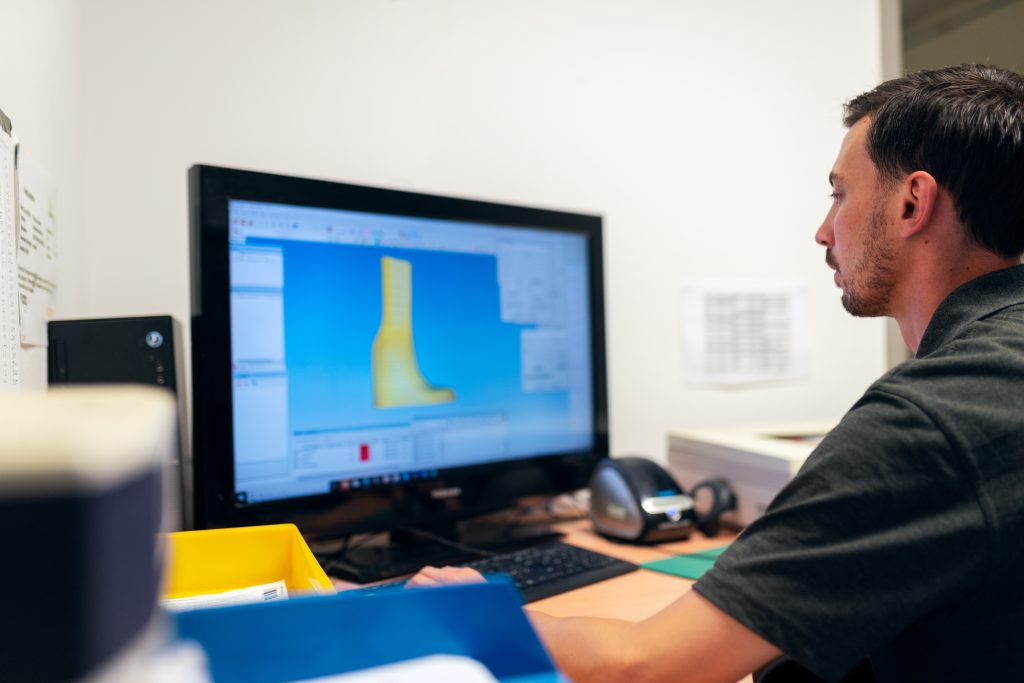
Foot pain is a common issue affecting millions worldwide, impacting daily activities and overall well-being. To address this discomfort, many consider custom orthotics, shoe inserts designed specifically for individual feet. But the question remains: Do custom orthotics really work?
This blog delves into the world of custom orthotics, exploring their effectiveness, potential benefits, and limitations. By the end, you’ll have a clear understanding of whether this solution might be right for you.
What are Custom Orthotics and How Do They Work?
Custom orthotics are inserts made from various materials like plastic, cork, or foam. They are crafted based on the unique contours of your feet, providing support and correction for specific conditions. Unlike over-the-counter insoles, customised orthotics address your individual needs, offering a personalized approach to foot care.
These inserts work by:
- Correcting biomechanical imbalances: They can adjust the alignment of your feet and ankles, addressing issues like overpronation or supination.
- Providing cushioning and support: They offer comfort and shock absorption, reducing stress on your feet and joints.
- Distributing pressure evenly: They help spread your weight more evenly across the soles of your feet, alleviating pain and preventing injuries.
Potential Benefits of Custom Orthotics:
Customised orthotics can offer a range of benefits for individuals experiencing foot pain or specific foot conditions. These include:
- Pain relief: They can effectively reduce pain caused by conditions like plantar fasciitis, heel spurs, arch pain, and metatarsalgia.
- Improved mobility: They can enhance balance and stability, making walking and other activities easier and more comfortable.
- Injury prevention: By correcting biomechanical imbalances, they can help prevent future foot and ankle injuries.
- Enhanced athletic performance: They can provide support and stability, leading to improved athletic performance.
- Reduced fatigue: They can decrease fatigue in your legs and feet, allowing you to stay active for longer periods.
Limitations of Custom Orthotics:
While custom orthotics offer numerous benefits, it’s essential to understand their limitations:
- Cost: They can be expensive, with prices varying depending on materials, complexity, and fabrication methods.
- Time commitment: Obtaining customised orthotics requires a visit to a podiatrist or other healthcare professional for assessment and fitting.
- Adjusting period: It may take some time to adjust to wearing customised orthotics, and some individuals may experience initial discomfort.
- Not a cure: They are not a cure for all foot problems, and their effectiveness may vary depending on the individual and their specific condition.
- Not suitable for everyone: They may not be suitable for people with certain medical conditions or severe foot deformities.
Are Custom Orthotics Right for You?
Ultimately, whether custom orthotics are right for you depends on your individual needs and circumstances. Consulting a podiatrist or healthcare professional specializing in foot care is crucial. They will assess your feet, diagnose any underlying conditions, and determine if it would be beneficial.
They will consider factors such as:
- Your symptoms and pain level
- The type and severity of your foot condition
- Your activity level and lifestyle
- Your overall health and any medical conditions
Alternatives to Custom Orthotics:
If custom orthotics are not suitable for you or your budget, alternative options are available for managing foot pain and improving foot health:
- Over-the-counter insoles: These offer some support and cushioning but may not be as effective as customised orthotics for specific conditions.
- Physical therapy: Exercises can help strengthen your foot muscles and improve flexibility, reducing pain and preventing injuries.
- Lifestyle changes: Wearing supportive shoes, managing weight, and engaging in low-impact activities can contribute to improved foot health.
Examining the Evidence
Several studies have investigated the effectiveness of custom orthotics in treating different foot conditions. While results vary, there is evidence suggesting they can be beneficial for specific situations.
Conditions for which custom orthotics may be helpful:
- Plantar fasciitis: Studies show customised orthotics can be effective in reducing pain and inflammation associated with plantar fasciitis. The arch support provided by the orthotic helps take pressure off the plantar fascia ligament, allowing it to heal.
- High arches: Custom orthotics can provide additional support for the high arch, reducing pain and fatigue. They can also help prevent the development of other foot conditions, such as calluses and bunions.
- Overpronation: When your foot rolls inward excessively, it can lead to pain and instability. Customised orthotics can help correct this overpronation by supporting the medial arch and preventing the foot from rolling inwards.
- Heel pain: Customised orthotics can provide cushioning and support for the heel, reducing pain and inflammation. This can be particularly beneficial for people with conditions like heel spurs and plantar fasciitis.
Final Thoughts
Custom orthotics can be a valuable tool for managing foot pain and improving foot health for some individuals. However, their effectiveness varies depending on the specific condition and individual needs. Consulting a healthcare professional is crucial to determine if custom orthotics are right for you and explore alternative options if necessary.
By understanding the benefits and limitations of custom orthotics, you can make an informed decision about this potential solution for your foot health concerns.
